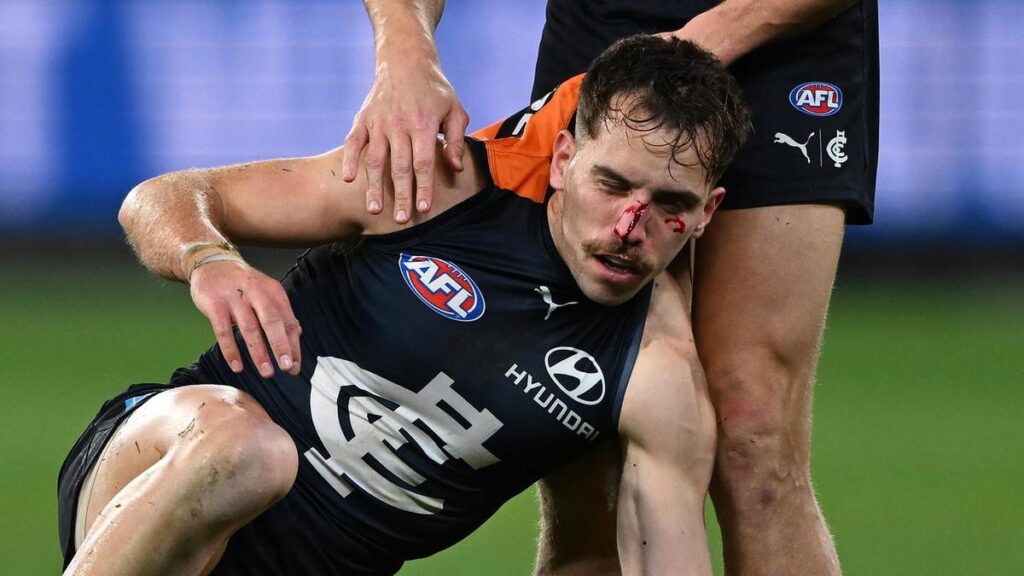
Melbourne defender Steven May has been handed a three-match suspension following a serious collision with Carlton forward Francis Evans that has sparked significant debate within the Australian Football League (AFL). The decision came after May was found guilty of rough conduct during a hearing at the AFL Tribunal on Wednesday night. The incident left Evans with a concussion, a broken nose, and a chipped tooth.
The collision occurred during a match at the Melbourne Cricket Ground (MCG) on March 11, 2023. Evidence presented during the tribunal hearing revealed that May had only 0.56 seconds to react after the ball’s final bounce before the impact. Daniel Cottam, a biomechanics expert, stated that May would have needed at least 0.2 to 0.25 seconds to adjust his actions appropriately. Cottam noted, “The time available to him to perceive and react to a complex scenario is not sufficient for him to adapt and avoid contact,” though not all of his findings were admissible during the hearing.
May expressed his shock at the incident, claiming he was confident he would reach the ball first. He argued that he had limited time to respond when Evans unexpectedly intercepted the ball. However, tribunal chairman Jeff Gleeson countered this assertion, emphasizing that May had sufficient time to anticipate the situation. Gleeson remarked, “The most he could have hoped was that he would arrive at about the same time as Evans,” suggesting that May failed to make any adjustments to avoid the collision.
The ruling has raised questions about player safety and the expectations placed on athletes during high-speed contests. Carlton’s captain, Patrick Cripps, commented on the incident in the “On the Inside” podcast, expressing confusion over what players are expected to do in such situations. “You never want to see a player get injured but I don’t understand what we want players to do,” he said.
May’s suspension sets a significant precedent regarding how players engage with loose balls, particularly when they arrive within a split second of each other. The three matches he will miss include crucial games against St Kilda, West Coast, and the Western Bulldogs.
The debate surrounding this decision reflects broader discussions within the AFL about player safety and the nature of physical contact in the sport. As players and officials navigate these complexities, the implications of such rulings will likely continue to resonate throughout the league.






